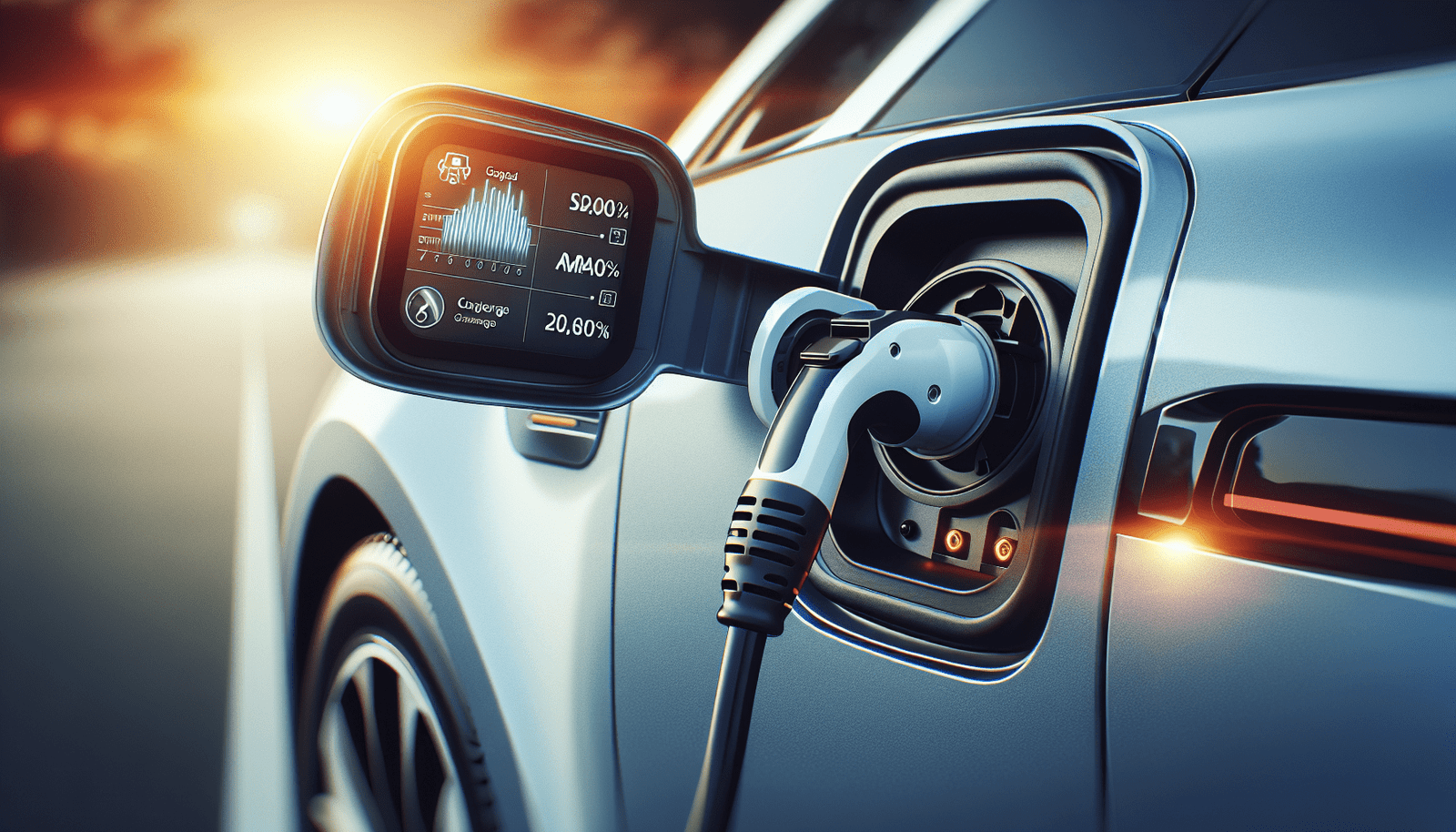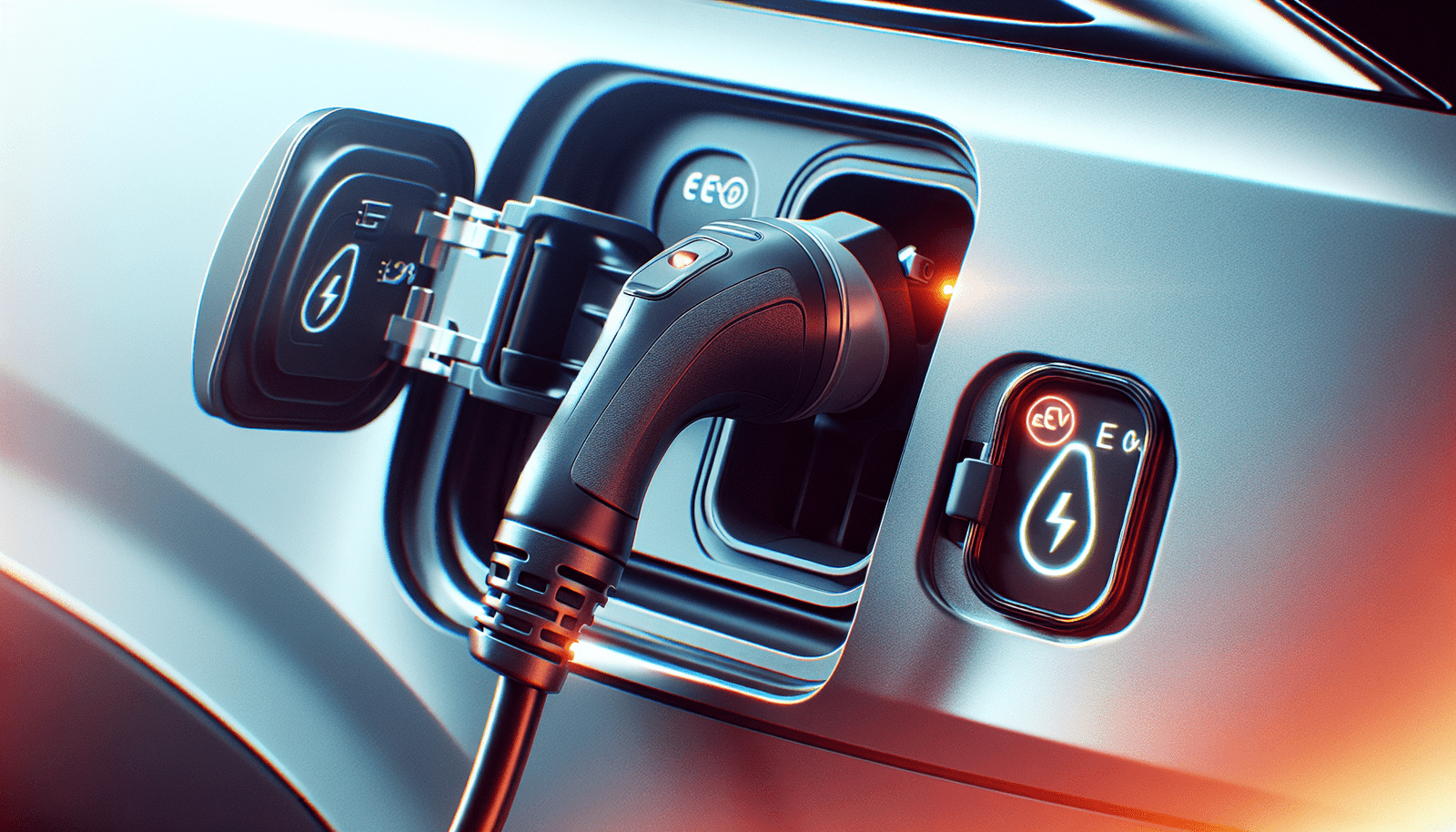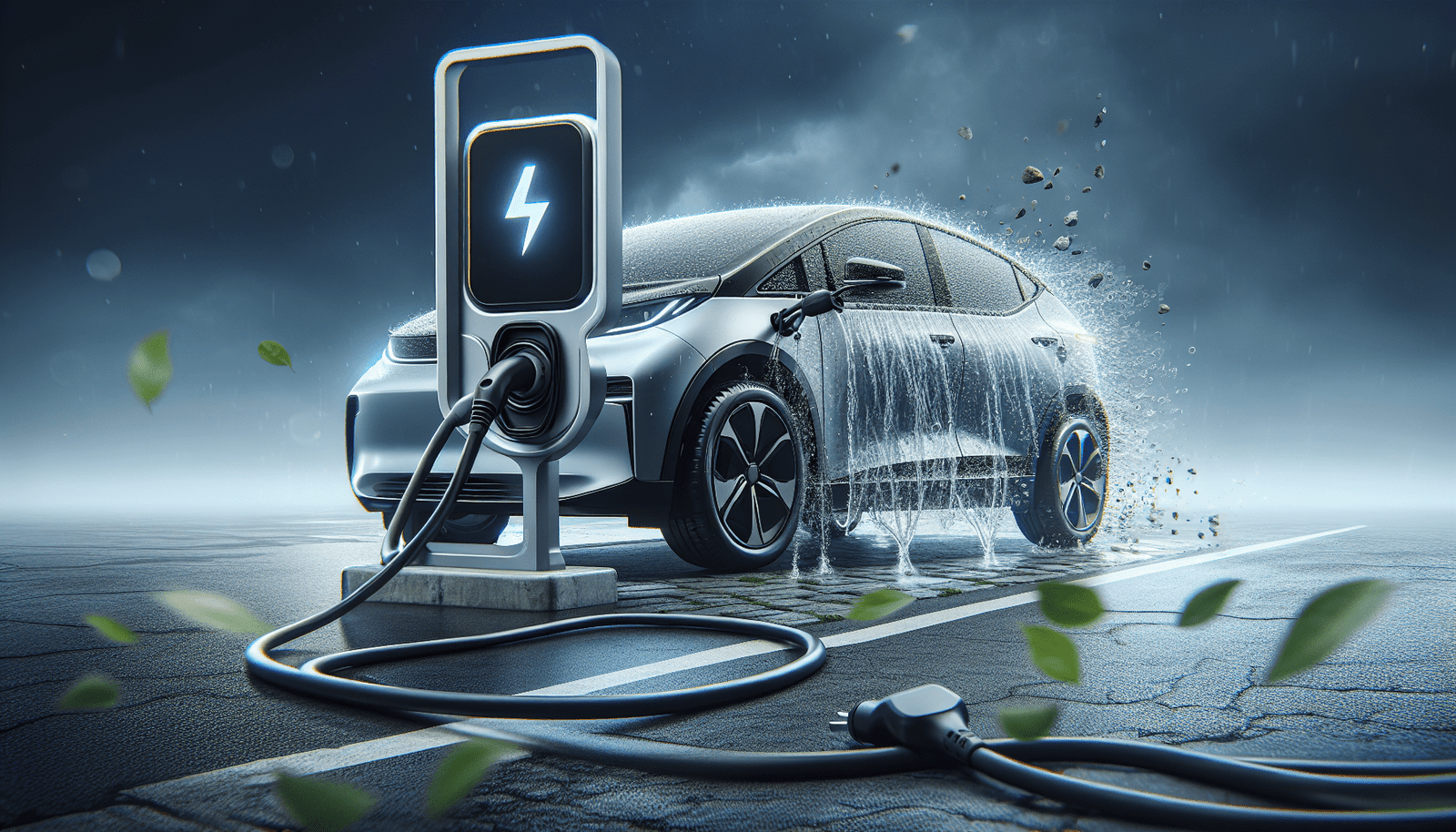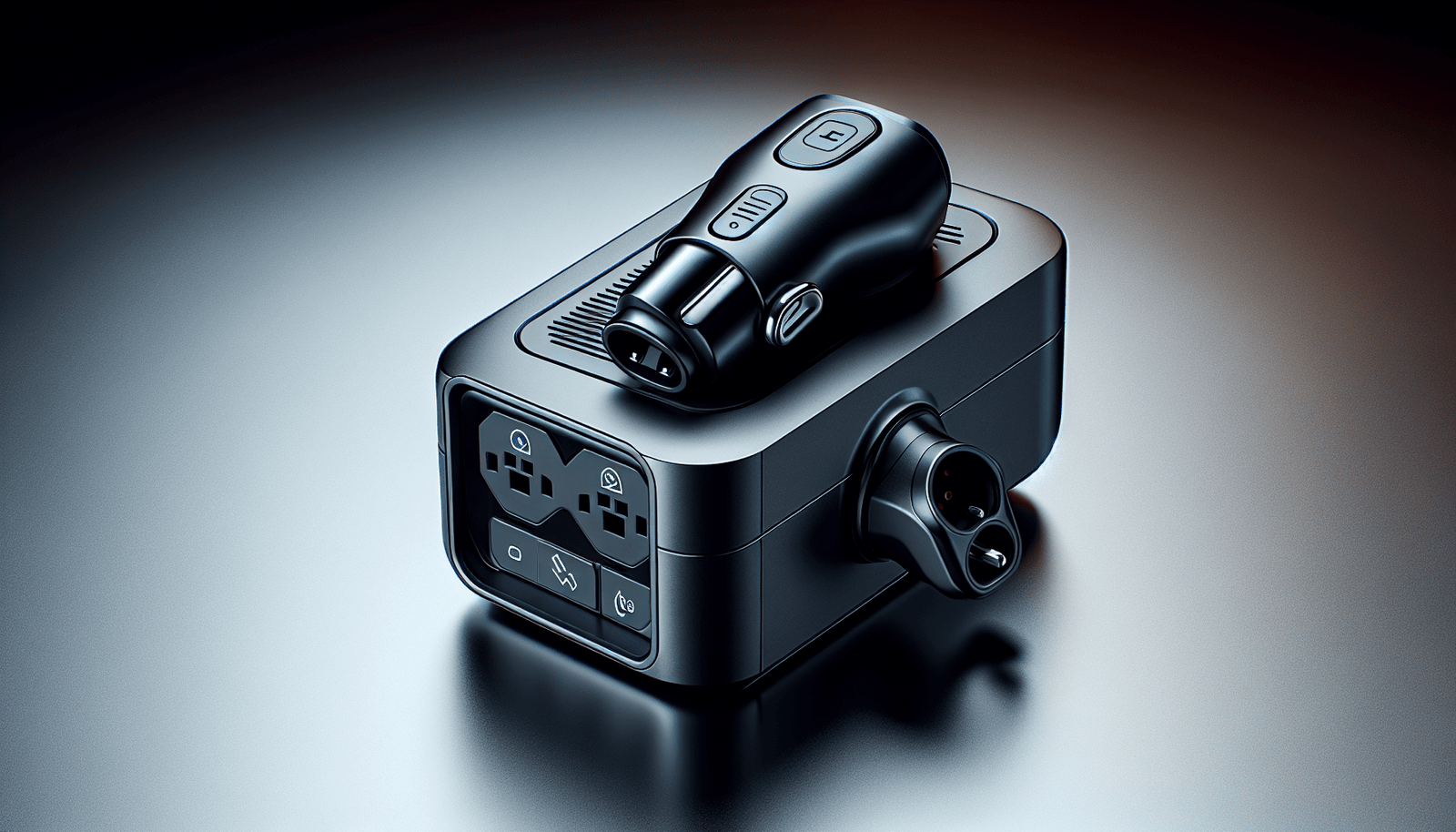So, you’re considering buying an EV Level 2 charger to enhance your electric vehicle charging experience? That’s a smart move! However, before you rush into making a purchase, it’s important to be aware of a few common mistakes that many people make when buying such chargers. By avoiding these missteps, you can ensure that you choose the right charger for your needs and maximize the efficiency and convenience of charging your EV. In this article, we’ll highlight the most common mistakes to watch out for, equipping you with the knowledge to make an informed decision and enjoy the benefits of owning an EV Level 2 charger.
Mistakes To Avoid When Buying An EV Level 2 Charger
Not Considering Amperage
Understanding charger amperage
When purchasing an EV Level 2 charger, one of the most important factors to consider is the amperage. Amperage, also known as current, determines how quickly your vehicle will charge. The higher the amperage, the faster your car will charge. It is crucial to understand that not all EVs can handle high amperage charging. Older models may have limitations on the maximum amperage they can accept, so it is essential to check your vehicle’s specifications before choosing a charger.
Choosing the right charger amperage
Selecting the appropriate charger amperage is essential to optimize charging time and avoid potential damage to your EV’s battery. If your vehicle supports high amperage charging, it is recommended to choose a charger with a higher amperage rating. However, if your EV has limitations on amperage, it is crucial to select a charger that matches your car’s specifications. Choosing the wrong charger amperage can result in longer charging times or even damage to your vehicle’s battery.
Effects of lower or higher charger amperage
Using a lower amperage charger than what your EV can handle will increase the charging time significantly. While it may not be a problem if you have plenty of time to charge, it can be frustrating if you need a quick charge. On the other hand, using a higher amperage charger than what your EV can handle may overload and damage your car’s battery. Therefore, it is crucial to consider your vehicle’s capabilities and choose the appropriate charger amperage to ensure efficient and safe charging.
Overlooking Charger Speed
Understanding the importance of charger speed
Charger speed is another vital aspect to consider when purchasing an EV Level 2 charger. The charger speed refers to how quickly the charger can deliver power to your electric vehicle. A faster charger speed means reduced charging time and increased convenience, especially for those who frequently need their EVs charged quickly. Overlooking charger speed can result in prolonged charging times that can be inconvenient for everyday use.
Identifying slow and fast chargers
To identify if a charger is slow or fast, you need to look at its charging power, usually measured in kilowatts (kW). A slow charger typically has a power output of 3.3 kW to 7 kW, while a fast charger can provide charging power ranging from 7 kW to 22 kW or higher. High-performance chargers, known as superchargers, can even deliver power upwards of 100 kW. When purchasing an EV Level 2 charger, opt for a faster charger if you value quicker charging times and greater convenience.
Choosing a charger based on charging speed
When choosing a charger based on charging speed, it’s essential to consider your specific needs and circumstances. If you have a busy schedule and need your EV charged quickly, investing in a faster charger will provide the convenience you require. However, if you have ample time for charging or your vehicle has a small battery capacity, a slower charger may be sufficient. Assess your charging needs and preferences to select a charger that meets your requirements for charging speed.
Ignoring Charger Compatibility
Importance of EV charger compatibility
Charger compatibility is often overlooked but is crucial for a hassle-free charging experience. Not all chargers are compatible with every electric vehicle model. Ignoring charger compatibility can lead to frustrating situations where the charger does not work with your EV or requires adapters and additional accessories to function correctly. It is essential to ensure that the charger you select is compatible with your specific EV to avoid unnecessary complications.
Identifying compatible and incompatible chargers
To determine if a charger is compatible with your EV, you need to consider the charging connector type, communication protocol, and charging standards supported by your vehicle. The most common charging connector types are Type 1 (SAE J1772) and Type 2 (IEC 62196). Additionally, electric vehicles may use different communication protocols such as CHAdeMO or CCS. Ensure that your chosen charger supports the same charging connector type and communication protocol as your EV for seamless compatibility.
Considerations for EV charger compatibility
Before purchasing an EV Level 2 charger, it is crucial to research your vehicle’s compatibility requirements and review the charger’s specifications. Some chargers offer compatibility with multiple connector types and communication protocols, making them versatile options. It is also essential to consider future EV purchases and the possibility of different models within your household, as compatibility requirements may vary. By thoroughly considering charger compatibility, you can ensure a smooth and efficient charging experience for your electric vehicle.
Neglecting the Cable Length
Understanding the importance of cable length
The cable length of an EV Level 2 charger is an often overlooked factor, but it plays a crucial role in charging convenience. Neglecting to consider cable length can result in limitations when trying to reach your vehicle’s charging port comfortably. It is important to choose a charger with an appropriate cable length to ensure flexibility and ease of use during charging sessions.
Influence of cable length on charging convenience
A longer cable length provides greater flexibility when parking your EV during charging. It allows you to reach the charging port with ease, regardless of the location of the charger. With a shorter cable, you may face difficulties in positioning your vehicle correctly, especially in crowded parking spaces or when there are obstacles between your EV and the charger. Neglecting cable length can lead to frustration and inconvenience during your charging routine.
Choosing the right cable length
To determine the right cable length for your EV Level 2 charger, assess your parking situation and charging requirements. Consider the distance between your parking space and the area where you plan to install the charger. Take into account any potential obstacles that may require a longer cable. Additionally, if you frequently need to charge in different locations, a longer cable provides versatility. By selecting the appropriate cable length, you can ensure a convenient and stress-free charging experience for your electric vehicle.
Not Checking for Safety Certifications
Understanding the importance of safety certifications
Safety certifications are crucial when purchasing an EV Level 2 charger to protect both your vehicle and your home’s electrical system. Not checking for safety certifications can lead to potential hazards such as fire, electrical shock, or damage to your EV. Chargers with proper safety certifications ensure compliance with industry standards and undergo rigorous testing to ensure safe and reliable operation. Therefore, it is essential to prioritize safety certifications when selecting a charger.
Identifying safety certifications
There are several safety certifications to look for when purchasing an EV Level 2 charger. The most recognized and widely respected safety certification is the UL (Underwriters Laboratories) certification. It ensures that the charger has undergone testing and meets strict safety standards. In addition to UL, other important safety certifications include ETL (Intertek) and CSA (Canadian Standards Association). These certifications provide assurance that the charger has passed necessary safety tests and complies with industry requirements.
Choosing a charger with appropriate safety certification
To ensure the safety of your EV charging experience, prioritize chargers with proper safety certifications. Look for chargers that bear a UL, ETL, or CSA certification, indicating compliance with established safety standards. By choosing a charger with appropriate safety certification, you can have peace of mind, knowing that your vehicle and electrical system are protected from potential safety risks.
Choosing Non-Weatherproof Chargers
Understanding why weatherproofing is important
Weatherproofing is an essential feature to consider when purchasing an EV Level 2 charger, especially if you plan to install it outdoors. Non-weatherproof chargers can be adversely affected by rain, snow, extreme temperatures, or other environmental factors. Ignoring weatherproofing can lead to malfunctions, reduced durability, and potential safety hazards. Therefore, it is crucial to choose a charger designed to withstand various weather conditions.
Identifying weatherproof and non-weatherproof chargers
To identify if a charger is weatherproof, look for specifications or labels that indicate its resistance to water and dust. Weatherproof chargers typically carry an IP (Ingress Protection) rating, such as IP66 or IP67. These ratings determine the charger’s ability to resist moisture and dust penetration. Chargers without a weatherproof rating or lacking adequate protection can be damaged or pose safety risks when exposed to harsh weather conditions.
Choosing a suitable charger based on whether it is weatherproof or not
When selecting an EV Level 2 charger, consider whether you plan to install it indoors or outdoors. If you intend to install the charger outdoors, prioritize weatherproof chargers with a suitable IP rating to ensure longevity and safe operation in various weather conditions. Indoor chargers may not require the same level of weather resistance, but it is still important to choose a charger that meets quality and safety standards. By choosing a charger suitable for your installation environment, you can avoid potential issues caused by exposure to the elements.
Ignoring Installation Requirements
Understanding EV charger installation requirements
Ignoring EV charger installation requirements can result in unnecessary complications and potential safety risks. Different chargers have different installation requirements that must be followed for optimal performance and safety. Installation requirements may include electrical capacity, dedicated circuits, proper grounding, and physical space considerations. It is essential to understand these requirements before purchasing a charger to ensure a smooth installation process.
Considering the complexity of EV charger installation
Installing an EV Level 2 charger often involves electrical work and may require the expertise of a licensed electrician. Ignoring installation requirements can lead to improper wiring, overloaded circuits, or inadequate grounding, which can create hazardous situations and risk damaging your vehicle or property. It is vital to familiarize yourself with the installation requirements and assess whether you have the necessary knowledge and skills to perform the installation or seek professional assistance.
Choosing a charger based on installation convenience
To minimize complications and ensure a successful installation, choose a charger that aligns with your installation requirements. Review the charger’s installation guidelines, electrical capacity, and physical space requirements. Consider whether you have the electrical infrastructure to support the charger’s power demands and if you have adequate space for both the charger and the necessary electrical connections. By selecting a charger that fits your installation circumstances, you can avoid unnecessary challenges and ensure a safe and efficient charging setup.
Disregarding Future Planning
Importance of planning for future EV needs
Disregarding future planning when buying an EV Level 2 charger can limit your charging capabilities as your needs evolve. EV technology continues to advance, with new models introducing higher charging capacities and different connector types. By considering your future EV needs, you can make an informed decision and choose a charger that accommodates potential upgrades or additional vehicles.
Choosing a charger with future-proof features
When selecting an EV Level 2 charger, look for future-proof features that can adapt to evolving EV technologies. Consider chargers that support higher amperage capacities, multiple charging connector types, and advanced communication protocols. Some chargers even offer software updates to incorporate new features or compatibility with upcoming EV models. By choosing a charger with future-proof features, you can ensure longevity and compatibility while avoiding the need for expensive upgrades in the future.
Considering potential future EV models and their requirements
Anticipate potential future EV models and their charging requirements when purchasing a charger. Research upcoming models, their charging capacities, and connector types they may utilize. If you plan to switch to a different EV model or anticipate adding another electric vehicle to your household, choose a charger that can accommodate their charging needs. By proactively considering future EV models and their requirements, you can make a smart investment and avoid the need for unnecessary charger replacements or upgrades.
Not Considering Energy Efficiency
Understanding energy efficiency in EV chargers
Energy efficiency is an often overlooked factor when purchasing an EV Level 2 charger. Energy-efficient chargers can help reduce electricity consumption during charging sessions, resulting in cost savings and reduced environmental impact. Not considering energy efficiency may lead to higher electricity bills and contribute to unnecessary energy consumption.
Identifying energy efficient chargers
To determine if a charger is energy efficient, look for its efficiency rating, usually expressed as a percentage. A higher efficiency rating indicates that the charger can convert more of the electrical power from the grid into usable energy for your EV. Energy-efficient chargers minimize power losses and operate more efficiently, reducing the overall energy consumption and associated costs.
Choosing a charger based on its energy efficiency
When selecting an EV Level 2 charger, prioritize models with high energy efficiency ratings. An energy-efficient charger not only saves you money on electricity bills but also supports sustainability initiatives by minimizing overall power consumption. Look for chargers with efficiency ratings of 90% or higher. By making an environmentally conscious choice, you contribute to a greener future while enjoying the benefits of reduced energy costs.
Avoiding the Need of Warranty and Customer Support
Importance of warranty and customer support
Warranty and customer support are crucial considerations when purchasing an EV Level 2 charger. Chargers can experience malfunctions or defects, and having a comprehensive warranty ensures that you receive timely repairs or replacements. Additionally, reliable customer support provides assistance and guidance should any issues arise during installation or operation. Avoiding the need for warranty and customer support may leave you stranded without assistance if unexpected problems occur.
Identifying the warranty and support options
Before purchasing a charger, carefully review the warranty terms and conditions provided by the manufacturer. Consider the duration of the warranty, the type of defects covered, and any limitations or exclusions. Additionally, research the manufacturer’s customer support reputation and availability. Look for manufacturers with a track record of responsive and reliable customer service to ensure a smooth experience in the event of any problems.
Choosing a charger based on warranty and support considerations
Prioritize chargers that offer comprehensive warranties and reliable customer support. Look for chargers that provide extended warranty periods and coverage for a wide range of defects. Additionally, consider manufacturers known for their exceptional customer service to guarantee support when you need it. By choosing a charger with robust warranty and support options, you can have confidence in your purchase and enjoy peace of mind throughout your charging experience.
In conclusion, when purchasing an EV Level 2 charger, it is crucial to consider amperage, charger speed, charger compatibility, cable length, safety certifications, weatherproofing, installation requirements, future planning, energy efficiency, and warranty and customer support. By avoiding common mistakes such as disregarding these factors, you can ensure a smooth, efficient, and safe charging experience for your electric vehicle. Make an informed decision and select the EV charger that best suits your needs, taking into account the specific requirements of your vehicle and your charging preferences.




